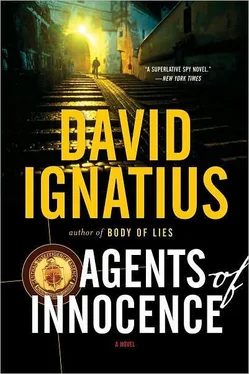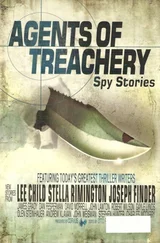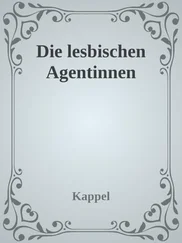David Ignatius - Agents of Innocence
Здесь есть возможность читать онлайн «David Ignatius - Agents of Innocence» весь текст электронной книги совершенно бесплатно (целиком полную версию без сокращений). В некоторых случаях можно слушать аудио, скачать через торрент в формате fb2 и присутствует краткое содержание. Жанр: Шпионский детектив, на английском языке. Описание произведения, (предисловие) а так же отзывы посетителей доступны на портале библиотеки ЛибКат.
- Название:Agents of Innocence
- Автор:
- Жанр:
- Год:неизвестен
- ISBN:нет данных
- Рейтинг книги:3 / 5. Голосов: 1
-
Избранное:Добавить в избранное
- Отзывы:
-
Ваша оценка:
- 60
- 1
- 2
- 3
- 4
- 5
Agents of Innocence: краткое содержание, описание и аннотация
Предлагаем к чтению аннотацию, описание, краткое содержание или предисловие (зависит от того, что написал сам автор книги «Agents of Innocence»). Если вы не нашли необходимую информацию о книге — напишите в комментариях, мы постараемся отыскать её.
Agents of Innocence — читать онлайн бесплатно полную книгу (весь текст) целиком
Ниже представлен текст книги, разбитый по страницам. Система сохранения места последней прочитанной страницы, позволяет с удобством читать онлайн бесплатно книгу «Agents of Innocence», без необходимости каждый раз заново искать на чём Вы остановились. Поставьте закладку, и сможете в любой момент перейти на страницу, на которой закончили чтение.
Интервал:
Закладка:
“The aerial?”
“Yes. The car aerial.”
“Amin!” said Rogers loudly. “Why did they need an aerial? What were they going to use the remote-controlled bombs for?”
“Don’t you know?” said Amin, tilting his head. “Isn’t it obvious?”
“No,” said Rogers.
“Car bombs!”
Rogers felt sick. He could not ask the next question.
“Why did your group need car bombs?” asked Fares.
“Because the other side had them. The Palestinians.”
“How did you know that?”
“Because the Bombmaker told us.”
“Yes, but how did he know?”
“He knew because…” Amin began to laugh. “It’s sort of funny, really.”
“How did he know?”
“He knew because a few months before he came to us, he had been working for the Palestinians. Teaching them how to make bombs. That was his job, you see. Teaching people how to make bombs!”
The young Lebanese continued to laugh. It was a nervous giggle-like the sound of a frayed nerve vibrating-that masked emotions Amin could not express.
“And who were the targets?”
“What?”
“Who were the targets?”
The question produced another stutter of laughter from Amin. Then there was silence, and a look of pain and exhaustion that distorted his face.
“That was what bothered me,” said the boy, his face frozen. “The Bombmaker told us that it didn’t matter! We could decide about all that later. He said it would be easy. With car bombs, we wouldn’t need specific targets!”
“Why not?” asked Rogers, almost in a whisper.
“Because we would only need an address.”
“An address?”
“Yes. A street address. Where to park the car.”
The apprentice terrorist looked at Rogers. He put his head in his hands. Was he crying? Was he laughing? It didn’t matter. Fares embraced the boy.
“Do you have any more training sessions scheduled with the Bombmaker?” asked Rogers.
“Yes,” said Amin. “One more.”
“Good boy,” said Rogers. “You are very brave to have come here and talked with us. Go to your next session. Behave normally. And don’t be frightened. We will make sure that no harm comes to you.”
The young Lebanese nodded. Fares escorted him to the door, speaking gently to him in Arabic. Rogers watched him walk out the door, into the Christian heartland of Kesrouan, and then turned to Fares.
“Follow him,” said the American.
29
Beirut; June 1971
They followed Amin Shartouni until he led them, several days later, to the Bombmaker. Then they followed the Bombmaker.
Hoffman organized the surveillance. It was, he said, the most interesting and complicated surveillance problem he had encountered. How do you track someone, with the utmost discretion, when you can’t use your usual trackers? Borrowing people from the Deuxieme Bureau was out of the question. Most of the other agents available to the CIA station would be too obvious. It was like trying to play chess without chessmen.
Eventually, with Fares’s help, they put together a small team, gathered mostly from Ankara, that could maintain loose surveillance on the Bombmaker. They also obtained photographs of him and some of the people he met. The results of this exercise were as startling as anything that Rogers had come across in more than a decade of intelligence work. When the evidence was ready, he took it to Hoffman and briefed him in detail.
Hoffman was standing at his open window when Rogers arrived for the briefing. The station chief was feeding bits of a chocolate eclair to a pigeon that had landed on the window sill.
“Show-and-tell time?” asked Hoffman.
“Yes, sir,” said Rogers.
“Awaaay we go!” said Hoffman. He scooted over to his desk with a dancelike motion similar to the one made famous by the comedian Jackie Gleason. Looking at him, Rogers wondered whether perhaps the station chief was becoming more eccentric than a government official could afford to be.
“This is the man known as ‘the Bombmaker,’ ” began Rogers.
He handed Hoffman a grainy photograph taken from a distance with a high-powered lens. It showed a heavyset Arab man with a stubbly beard and a mustache. He had a bald spot on his head and was wearing thick glasses. There were bags under his eyes and a look of perpetual sleeplessness. He was wearing what appeared to be an expensive silk shirt, open at the neck. Because he was overweight, the fabric was pulling at the buttons. Around his neck, matted in the hair on his chest, was a large gold ingot.
“So this is the face of evil,” said Hoffman. “He looks to me like your average fat slob.”
Rogers handed Hoffman the next photograph.
“This is a picture of the apartment building where he lives,” said Rogers. The photo showed a modern building, with clothes hanging from some of the balconies and children in the courtyard.
“Where is it?” asked Hoffman.
“West Beirut,” said Rogers. “Off the Corniche Mazraa, near the Palestinian camps.”
“But I thought you told me this guy was a Christian,” said Hoffman.
“He is,” said Rogers.
“Well, then, why in the Sam J. Hill is he living in the middle of a bunch of Palestinians?”
“Because he’s a Palestinian.”
“Now listen, Rogers. Don’t fuck with me. I’m warning you.”
“I’m not,” said Rogers.
“Well, then, what is he? A Christian or a Palestinian?”
“He’s both. That’s what I’m trying to tell you. He’s a Christian Palestinian. His family is from Bethlehem.”
“Oh,” said Hoffman.
“His real name is Youssef Kizib. He studied electrical engineering at Cairo University ten years ago and he was the best student in his class, by far. His teachers still remember him. He was the student who could build anything. He was working on his doctorate when he got in trouble with the Moukharabat in Egypt. They thought he was working with one of the Palestinian underground groups. He fled to Lebanon in 1964 and has been here ever since, except for occasional trips to Cannes, where he lives like a pasha.”
“Attractive fellow,” said Hoffman.
“Now here’s the interesting part,” said Rogers. He handed Hoffman another grainy, telephoto-lens picture. It showed the Bombmaker in a dimly-lit room. Standing near him were Amin Shartouni and several other young Lebanese.
“This is the Bombmaker with his Lebanese Christian pupils,” said Rogers. “We tracked them to the place where they do their training in the mountains. This picture shows him giving his final lesson.”
“What’s that?” asked Hoffman.
“How to make bombs that are hidden in the lining of a suitcase, that will explode when an airplane reaches a certain altitude.”
“Why in heaven’s name do the Lebanese Christians need to know that?” asked Hoffman.
“They probably don’t,” answered Rogers. “But it’s part of the curriculum.”
“Asshole,” said Hoffman, looking again at the heavyset face with the stubbly beard.
“Guess where this next picture was taken?” said Rogers as he handed Hoffman another photograph. This one showed the gray exterior of a modern office building on a hill overlooking Lebanon. In the foreground of the picture was a short man dressed in an army uniform.
“I give up,” said Hoffman without looking at the picture.
“It’s the headquarters of army intelligence, formerly known as the Deuxieme Bureau. The man in the foreground is a Lebanese Army major who happens to be a cousin of the president.”
“The Squirrel?”
“Yes, sir.”
“So what?” said Hoffman.
Rogers handed him the next picture. It showed the same Lebanese intelligence officer sitting in a cafe talking with the Bombmaker, Youssef Kizib.
Читать дальшеИнтервал:
Закладка:
Похожие книги на «Agents of Innocence»
Представляем Вашему вниманию похожие книги на «Agents of Innocence» списком для выбора. Мы отобрали схожую по названию и смыслу литературу в надежде предоставить читателям больше вариантов отыскать новые, интересные, ещё непрочитанные произведения.
Обсуждение, отзывы о книге «Agents of Innocence» и просто собственные мнения читателей. Оставьте ваши комментарии, напишите, что Вы думаете о произведении, его смысле или главных героях. Укажите что конкретно понравилось, а что нет, и почему Вы так считаете.












